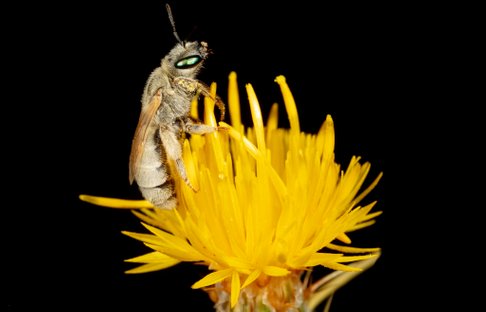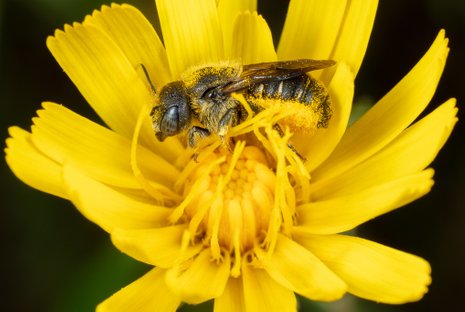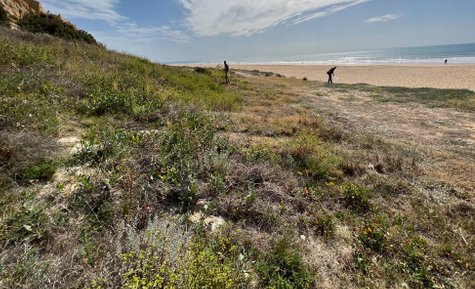Advanced course on the ecology, evolution, systematics and conservation of wild bees in Europe.
A first edition of the European Bee Course was developed in the spectacularly scenic island of Lesvos (Mytilene, Greece) in the framework of the ALARM project (2004-2009).
Since then, a small group of instructors actively involved in scientific research on wild bees in Europe (and sometimes on other continents, too!) have grouped together in the framework of the SUPER-B EU COST action (2014-2017) with specific objectives:
(i) to provide the attendees with a global overview on the diversity of European bees;
(ii) to highlight important aspects of wild bee ecology and conservation;
(iii) to introduce students to the identification of the main European bee genera by using ID keys;
and (iv) to conduct field surveys using different sampling techniques, followed by the preparation of collected specimens for their identification in the laboratory.
A series of three European Bee Courses have been successfully organised in France (Marseille), Cyprus and Malta during the course of the SUPER-B EU COST action. Just like the research output of the Bee Course held in Marseille (France), we plan to publish species records datasets generated during future Bee Courses as individual data papers or short natural history notes featuring all attendees and instructors as co-authors.
Now that we are all exempt of the Covid-related travel restrictions, and since there is a growing community of young researchers eager to learn more about bees, we hope to organise new sessions of the European Bee Course in some of the finest locations of Europe for bee research and fieldwork, hosted by a range of "national champions" and featuring a team of internationally-acclaimed researchers covering a wide range of expertises.
We are confident that Bee Courses provide an excellent and particularly appropriate tool to create and strengthen a growing network of professionals working on bees all across Europe. The values shared by all instructors include the need to generate and share biodiversity data, as well as to facilitate the access to the latest scientific research and experts in the field, as well as the dissemination of identification tools. This, in turn, will actively contribute to fill the persistent gaps in our knowledge on the bees of Europe.


For this new series of European Bee Courses starting in 2023, we have grouped together researchers with tremendous expertise in the diversity, systematics, ecology and conservation of wild bees.
The experts below have already agreed to join the team, and we expect more researchers to join us in the future to offer a range of more in-depth courses on a variety of topics including modern methods in species delination, community structure analyses, bee-flower interaction networks, phylogenetic reconstruction, AI-assisted identification, species distribution modeling, etc. If you are an instructor interested in teaching some of these aspects with a focus on bees or other exciting topics, please reach out to join the team!

The Bee Course will offer a 2023 session in the beautiful Doñana Nature Reserve of Andalucia (Spain), from March 13-17, 2023.
The Bee Course instructors for this session in Andalucia will include our hosts Prof. Ignacio Bartomeus and Mr. Curro Molina (Estación Biológica de Doñana), as well as bee experts Mr. Stuart P.M. Roberts (Scientific collaborator at the Université libre de Bruxelles, Belgium) and Prof. Nicolas J. Vereecken (Université libre de Bruxelles, Belgium).
All Bee Course instructors will share their knowledge on the diversity of bees, their identification and their ecological relationships in Mediterranean Europe.
Website designed by NJ Vereecken (2022) / All photos © NJ Vereecken